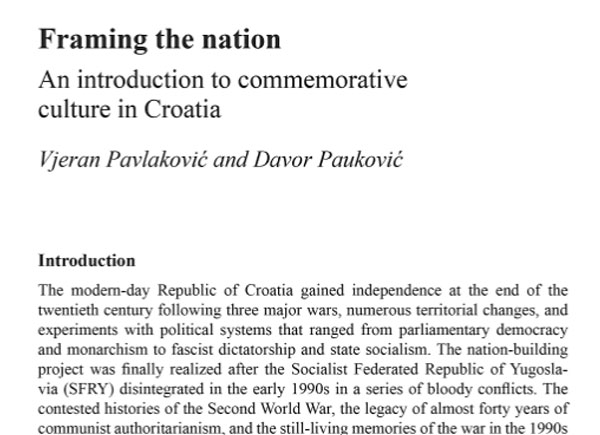
Pero Maldini, 2018: Sociocultural and ideological determinants of memory culture in Croatian society, u: Pavlaković, V.; Pauković, D. (eds.), Framing the Nation and Collective Identities: Political Rituals and Cultural Memory of the Twentieth Century Traumas in Croatia, Routledge,Abingdon and New York: 31-49.
Sažetak:
This chapter deals with the socio-cultural context, especially the Croatia’s historical and political legacy, political culture and structure of social cleavages, which serve as predictors of ideological polarities that significantly influence the shaping of political discourse and the interpretation of political history. In this way, this chapter seeks to determine the function of the sociocultural context, particularly certain segments that shape the memory culture in Croatian society, as well as the function of the interpretation of political history in legitimizing the political positions of political actors. Besides the analysis of this impact, the chapter shows how the different political and historical discourses and political interpretations of history are primarily a function of the worldview-ideological identification of political actors, primarily due to their political provenance and the necessity of sustaining political differences. They are a source of political conflicts, which often function as a substitute for debates on socio- economic grounds, primarily due to the insufficient capacity of political actors in addressing the socio-economic problems of society. In this way, the interpretation of political history has utilitarian features, which significantly affect the inability to achieve consensus on the modus of dealing with the past.











